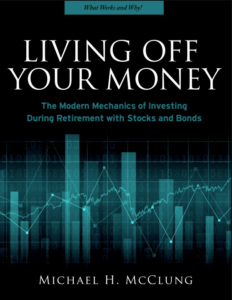What caught my eye this week.
Every few days a comment is left by a new visitor to this website – or I’ll get an email via the contact form – telling us we’re mistaken to champion passive funds as the best choice for most investors.
The reason given is invariably the past performance of manager X or of fund Y. (We’re also invariably informed the commentator has been investing in it for Z years and has done very well, thank you very much.)
Depending on how eloquent the comment is, I may publish it . Sometimes I’ll reply to it, and explain the shortcomings. Often I delete the glib ones.
Now before someone screams “censorship!” imagine how you’d feel replying to the same erroneous line of reasoning for ten years, from people who don’t know half as much as they think they do but are twice as confident about it as you are – and also remember that publishing their comment unchallenged could mean another reader sees it and embarks on a money-wasting strategy, despite the best intentions of your own website.
See? Delete!
It’s just not worth looking for winners
The evidence shows most active funds underperform. Anecdotal asides that this or that fund has done better from a fly-by-night commentator simply highlight the exceptions.
Of course, some active funds do outperform. Some will be lucky, but as an active stock picker myself, I happen to believe that genuine investing skill exists, too. It’s just that very few funds demonstrate it – making it very unlikely you’ll be invested in one that beats the market, let alone the half a dozen you’ll need for a well-diversified portfolio – and that active funds cost more – meaning that searching for the needles in the haystack will reduce your returns.
Low returns in turn mean you’ll have less money to spend when you retire. Which means you’ll be able to buy fewer things you need, or that your money will run out sooner. The decision to try to beat the market against all odds has big consequences.
Unless you’re an investing nut, why bother? Go passive.
Stars in their eyes
The allure of buying better funds persists though, and it’s not hard to see why.
Mostly in life we hire experts and pay more for the better ones. Investing is weird in that doing the complete opposite is a better decision. But people understandably struggle with the concept. It feels wrong. They look for other approaches, but they’d do better to spend more time getting their head around the merits of cheap index funds.
This week for example the Wall Street Journal made a big splash in the financial gossip-o-sphere pointing to the allegedly poor predictive value of Morningstar’s five-star rating system.
Unfortunately the article is behind a paywall, but the introduction sums up the accusation:
Investors everywhere think a 5-star rating from Morningstar means a mutual fund will be a top performer – it doesn’t.
For its part Morningstar disagrees with the Wall Street Journal‘s claim. The company wrote a detailed rebuttal, concluding that:
The Journal’s story notwithstanding, the star rating has been a useful starting point for research that tilts the odds of success in investors’ favor.
The forward-looking Analyst Rating, while newer, has also exhibited predictive power.
Used together, or separately, we think these ratings can improve outcomes and help investors achieve their goals, which is entirely in keeping with our mission as a firm.
I don’t know whether Morningstar’s rating system on average directs investors to the better-performing funds of the future. (Anyone can point to the winners with hindsight.) We’ve noted before that rating systems and best buy lists are pretty useless for passive investors anyway. And while I am an active investor, I buy companies, not open-ended active funds, for myriad reasons.
However I’m inclined to agree with Barry Ritholz who writes over at Bloomberg that:
It should come as no surprise that misunderstanding what fund ratings mean is a very typical error made by, well, just about everyone.
It isn’t a forecast of future returns, nor could it be. If it could successfully do that, Morningstar would have long ago set up a hedge fund to profit from its newly discovered abilities to identify winning investments.
As Ritholz also points out, Morningstar itself has regularly pointed to low expense ratios as “the strongest predictor of performance.”
And in case you haven’t been paying attention, it is passive funds that have the lowest expense ratios. So this finding is code for ‘passive funds beat active funds.’ Again.
You’ll find a list of the cheapest passive funds for UK investors on this very website.





